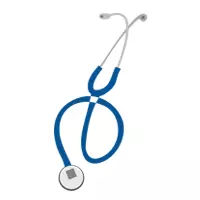- Home
- Medical news & Guidelines
- Anesthesiology
- Cardiology and CTVS
- Critical Care
- Dentistry
- Dermatology
- Diabetes and Endocrinology
- ENT
- Gastroenterology
- Medicine
- Nephrology
- Neurology
- Obstretics-Gynaecology
- Oncology
- Ophthalmology
- Orthopaedics
- Pediatrics-Neonatology
- Psychiatry
- Pulmonology
- Radiology
- Surgery
- Urology
- Laboratory Medicine
- Diet
- Nursing
- Paramedical
- Physiotherapy
- Health news
- Fact Check
- Bone Health Fact Check
- Brain Health Fact Check
- Cancer Related Fact Check
- Child Care Fact Check
- Dental and oral health fact check
- Diabetes and metabolic health fact check
- Diet and Nutrition Fact Check
- Eye and ENT Care Fact Check
- Fitness fact check
- Gut health fact check
- Heart health fact check
- Kidney health fact check
- Medical education fact check
- Men's health fact check
- Respiratory fact check
- Skin and hair care fact check
- Vaccine and Immunization fact check
- Women's health fact check
- AYUSH
- State News
- Andaman and Nicobar Islands
- Andhra Pradesh
- Arunachal Pradesh
- Assam
- Bihar
- Chandigarh
- Chattisgarh
- Dadra and Nagar Haveli
- Daman and Diu
- Delhi
- Goa
- Gujarat
- Haryana
- Himachal Pradesh
- Jammu & Kashmir
- Jharkhand
- Karnataka
- Kerala
- Ladakh
- Lakshadweep
- Madhya Pradesh
- Maharashtra
- Manipur
- Meghalaya
- Mizoram
- Nagaland
- Odisha
- Puducherry
- Punjab
- Rajasthan
- Sikkim
- Tamil Nadu
- Telangana
- Tripura
- Uttar Pradesh
- Uttrakhand
- West Bengal
- Medical Education
- Industry
Top 10 Takeaways from the 2023 European Society of Hypertension Guidelines for Arterial Hypertension - Video
Overview
The European Society of Hypertension released the "2023 European Society of Hypertension Guidelines for Arterial Hypertension" 32nd European Meeting on Hypertension & Cardiovascular Protection" held at Allianz, Mico- Milan, Italy.
Here are the “Top Ten Takeaways from the guidelines:-
1. Definition of Hypertension and its threshold for intervention remains unchanged from the 2018 guidelines.
2. The guidelines have included additional clinical conditions as factors that influence Cardiovascular Risk in Hypertension; such as sleep disorders (including OSA), COPD, Gout, Chronic inflammatory diseases, Nonalcoholic fatty liver disease (NASH), Chronic infections (including long COVID-19), Migraine, Depressive syndromes, Erectile dysfunction
3. While Office BP is still the gold standard for the measurement of hypertension, there is a Greater emphasis on out-of-office BP measurements including Home BP Measurements and ABPM laid
4. Environmental exposure to air pollution or noise have been added as to the Factors that influence CV risk in patients with hypertension
5. Potassium supplementation in diet has been added as a lifestyle recommendation (except for patients with advanced CKD.
6. There is more explicit advice for the use of beta blockers as initial antihypertensive drug therapy. Beta Blockers can be used as monotherapy or at any step of combination therapy (Grade IA). These are specific conditions laid down for clinical considerations of Beta Blocker
7. Initiation of two-drug combination therapy is recommended for most hypertensive patients (Grade IA). Preferred combinations should comprise a RAAS Blocker (either an ACEi or ARB) with a CCB or Thiazide/Thiazide like Diuretics (Grade IA)
8. The use of single-pill combination (SPCs) should be preferred at any treatment step i.e., during initiation of therapy with a two-drug combination and at any other step of treatment
9. There is a new simplified approach to antihypertensive drug treatment in patients with heart failure, different for HFpEF and HFrEF with a recommendation for the use of SGLT2-inhibitors in Heart Failure with preserved Ejection Fraction (HFpEF) independently from the presence of diabetes
10. There is a more detailed set of recommendations for the management of patients with chronic kidney disease, including the use of SGLT-2 inhibitors and the non-steroidal mineralocorticoid antagonist finerenone, a recommendation for antihypertensive therapy to prevent cognitive decline and progression to dementia.
Speakers
Isra Zaman
B.Sc Life Sciences, M.Sc Biotechnology, B.Ed




